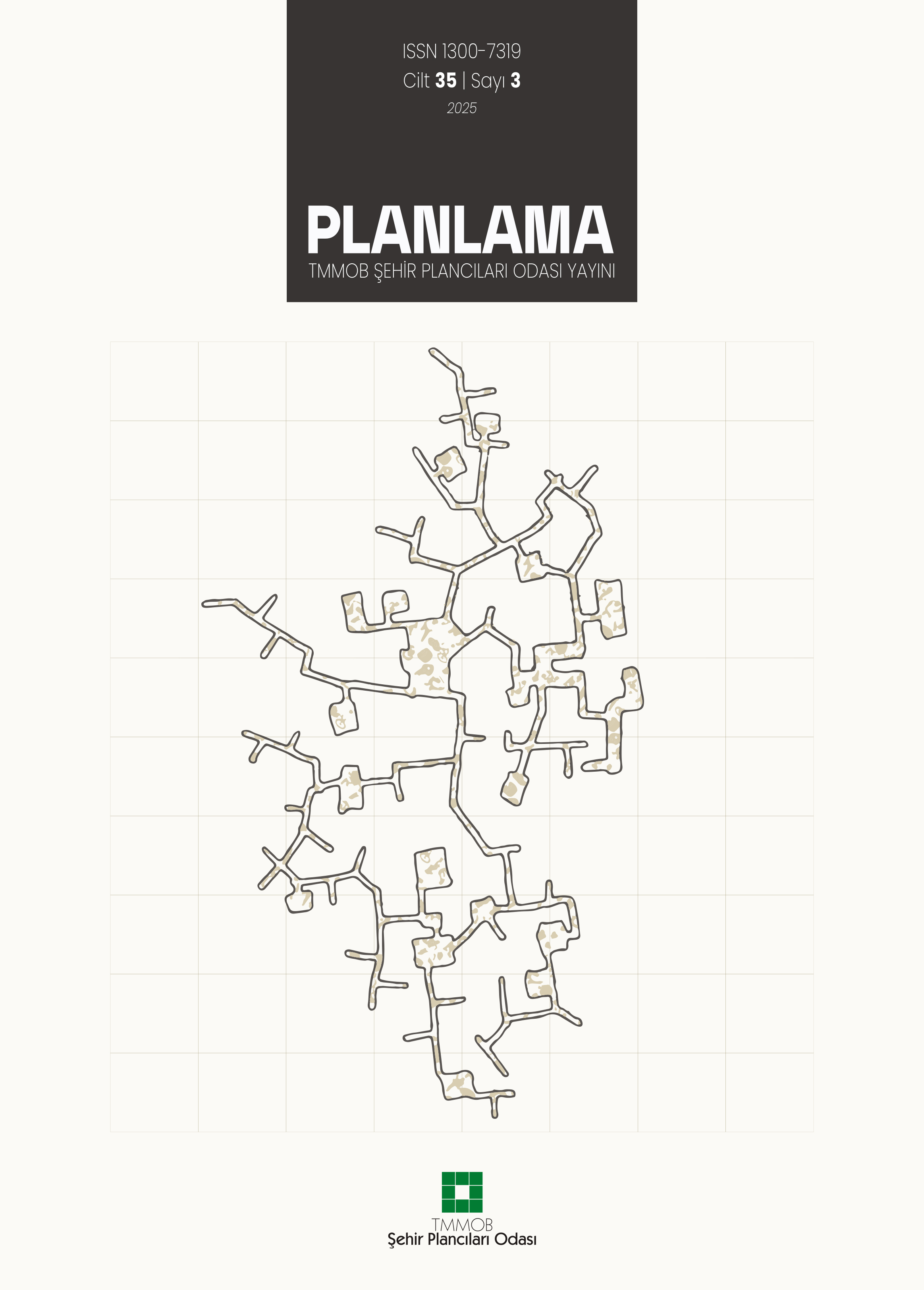Müştereklerin Çitlenmesi Ekseninde Kadınlar: Ekofeminist Perspektiften Türkiye’de Çevre Hareketleri
Dalya Hazar KalonyaPamukkale Üniversitesi Mimarlık ve Tasarım Fakültesi, Şehir ve Bölge Planlama Bölümü, DenizliEkofeminist perspektif tarafından yapılan yakın tarihli çalışmalar, toplumsal cinsiyet, çevre/doğa, doğal varlıklar, müşterekler ve çevre eylemleri arasındaki karşılıklı ilişkilere işaret ederken; biyoçeşitliliğin korunmasında kadınların küresel rolünü de tartışmaktadır. Kırsalda yaşayan ve geçimi doğal varlıklara bağlı olan kadınlar ile bitki biyoçeşitliliği ve tohumların korunması arasındaki belirgin ilişki yabancı literatürde sıklıkla ifade edilmektedir; ancak bu konu Türkiye’de henüz yeterince tartışılmamıştır. Kırsalda kadınlar, tohumların çeşitliliği ve sürekliliğinden, gıda döngüsü ve güvenliğinden, yem bitkilerinden, hayvancılıktan, ormancılıktan ve daha birçok üretim ve toplumsal yeniden üretim aracından sorumludur. Kadınların bu görünmez emeği, büyük tarım şirketlerinin dikte ettiği kısır monokültürler ile biyoçeşitliliğin kadimden beri süregelen, uzun erimli varlığı arasındaki çatışmanın tam ortasındadır. Buna ek olarak, ekofeminist perspektiften bakıldığında, doğal varlıkların ve/veya ekolojik müştereklerin çitlenmesine tepki olarak ortaya çıkan çevre eylemleri içerisinde kadınların oldukça görünür, hatta ön planda olduğu dikkat çekmektedir. Çalışma, ekofeminizm, müşterekler ve çevre hareketleri kavramlarına dair yapılan literatür taraması ve Türkiye’deki çevre hareketlerine dair yapılan medya analizi aracılığıyla çevre/doğa ve kadınlar arasındaki ilişkiyi müştereklerin çitlenmesi ekseninde tartışmakta ve CBS analiz araçlarını kullanarak Türkiye’deki çevre hareketlerini mekansallaştırmaktadır.
Anahtar Kelimeler: CBS, çevre hareketleri; ekofeminizm; kırsal politikalar; müşterekler; toplumsal cinsiyet; Türkiye.
Women in the Axis of the Enclosure of Commons: Environmental Movements in Turkey from the Ecofeminist Perspective
Dalya Hazar KalonyaPamukkale University Faculty of Architecture and Design, Department of City and Regional Planning, DenizliRecent studies by ecofeminist perspective refer to the interrelations between gender, environment/nature, natural assets, commons and environmental movements while also discuss the global role of women within the biodiversity protection. The significant relation between the plant diversity and seed protection and the rural women whose livelihood depend on the natural assets is stated in the foreign literature; however, this issue is not adequately discussed in Turkey yet. Rural women are responsible for the seed diversity and sustainability, food cycle and safety, forage crops, husbandry, forestry and many other production and common reproduction tools. This invisible labor of women is in the midst of the conflict between the barren monocultures dictated by major agricultural companies and the immemorially lasting and long-range asset of biodiversity. In addition, from the ecofeminist perspective, it is noteworthy that women are highly visible and even at the forefront in the environmental movements that emerge as a reaction to the enclosure of the natural assets and/or ecological commons. The study discusses the relationship between the natural resources and women within the axis of the enclosure of the commons through the literature review on the concepts of ecofeminism, commons and environmental movements; and spatializes the environmental movements in Turkey by using GIS analyst tools through the media analysis.
Keywords: GIS, environmental movements; ecofeminism; rural policies; commons; gender; Turkey.
Makale Dili: Türkçe














